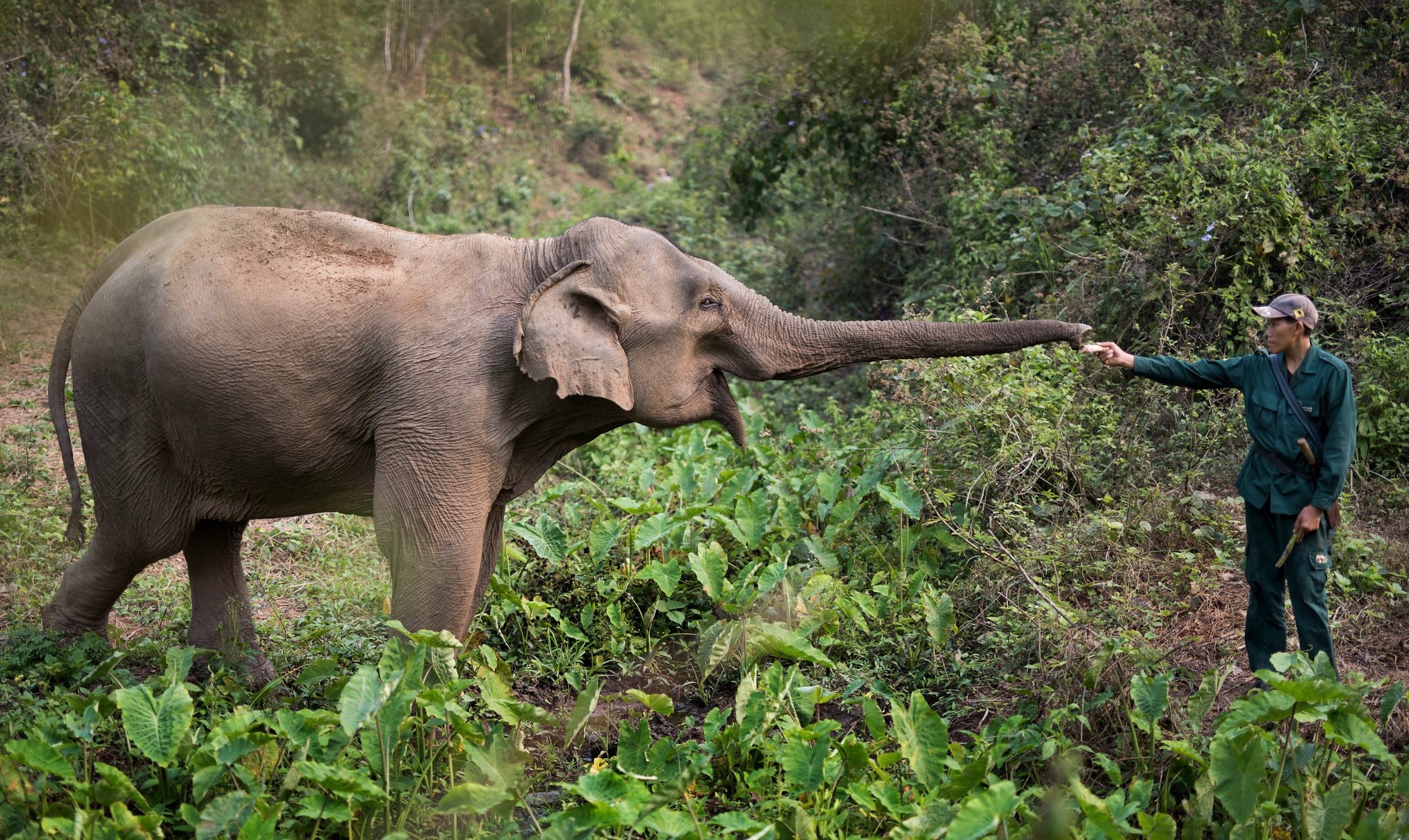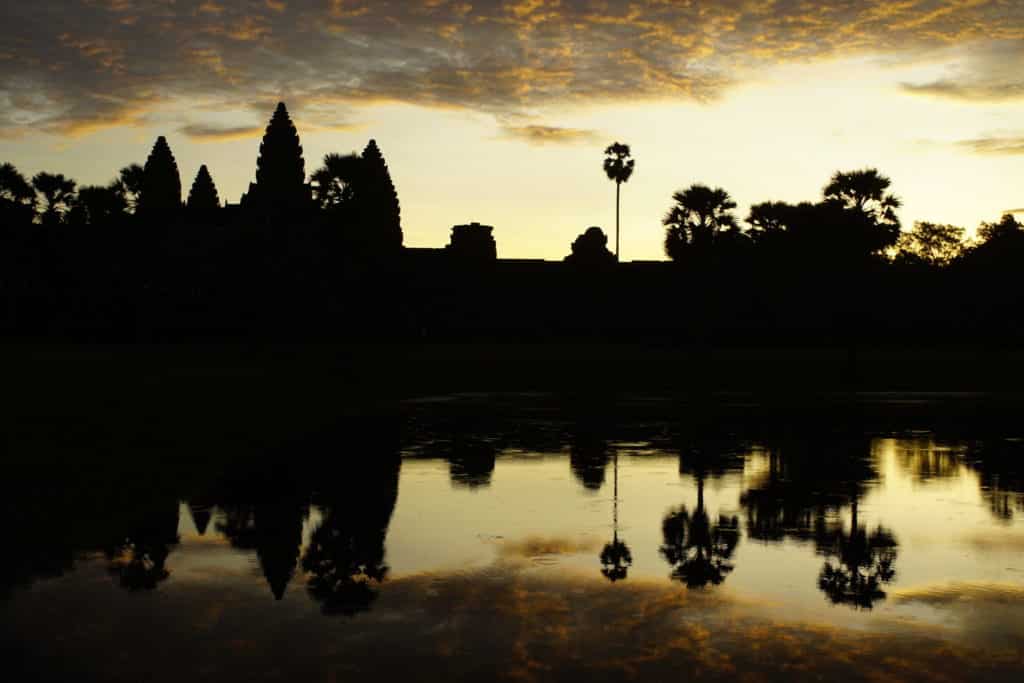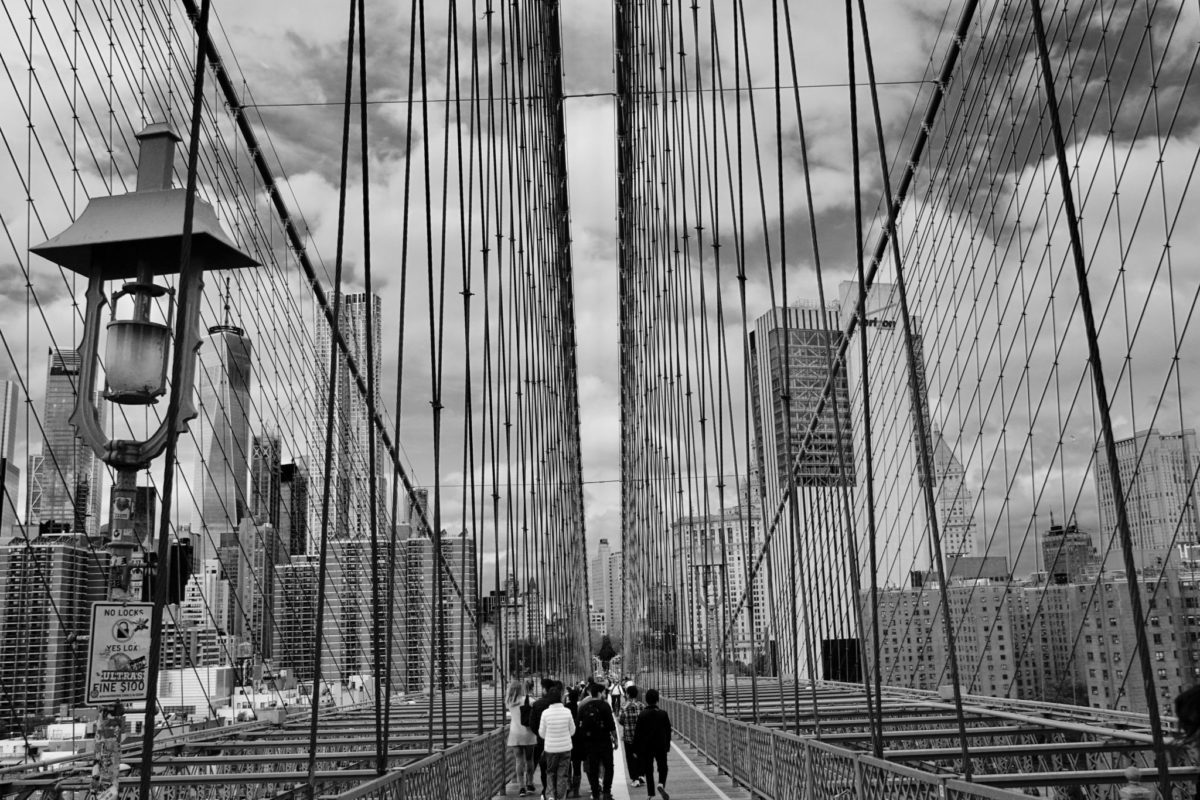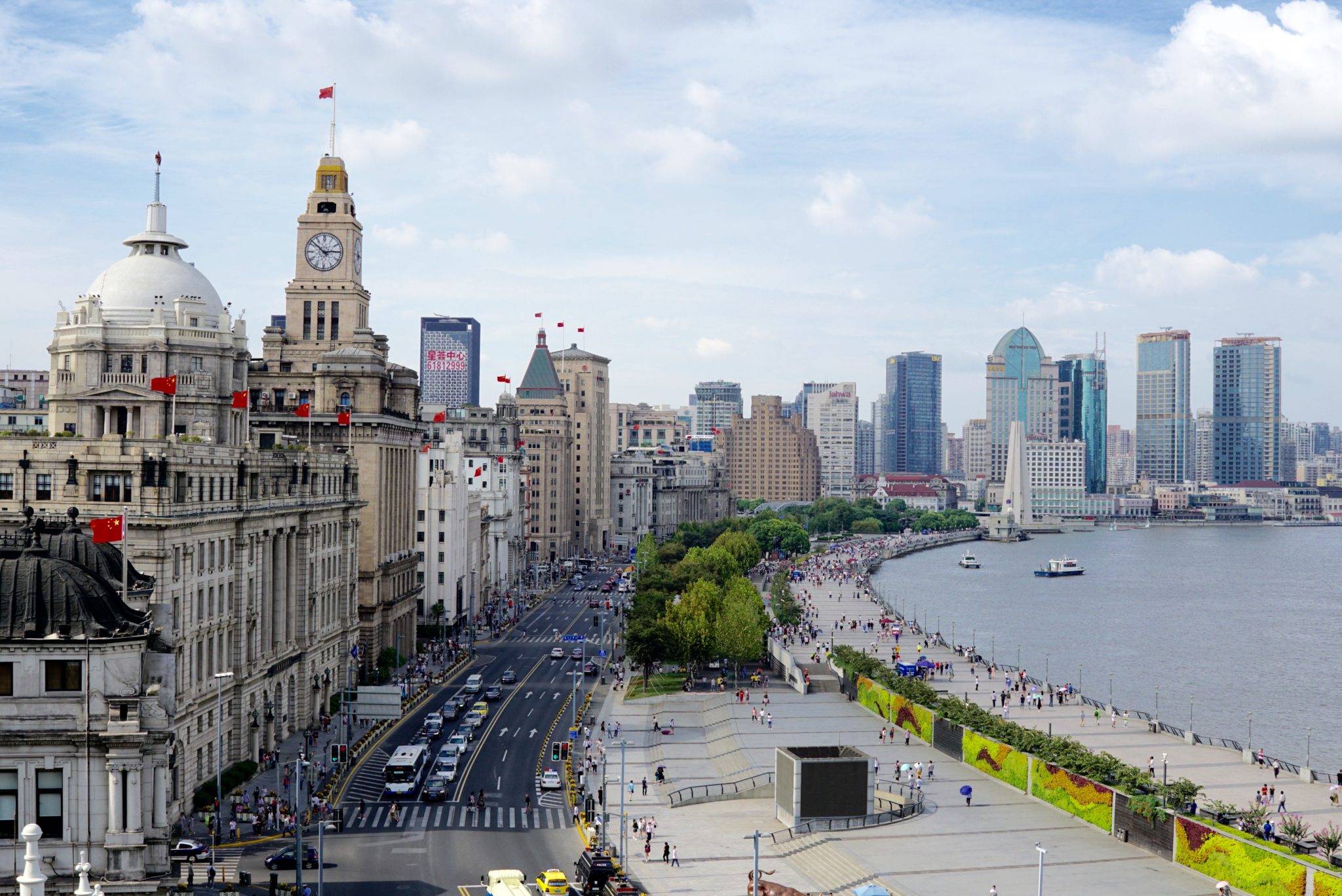I’ve always loved traveling to learn about a culture and gain perspective on different ways of life. Typically, I dislike tours and prefer to be away from tourist traps. Somehow, I never connected the dots between my two passions: community development and travel.
That is, until I met Ameer Virani, who works in sustainable tourism. He showed me that, in fact, I may have been unknowingly supporting local community development through travel. A light bulb went off, and conversation with him inspired me to consider approaching sustainable travel more intentionally.
I asked Ameer how we can all be more intentional travelers who sustainably support communities, rather than being obnoxious tourists. These are useful tips to keep in mind. Ameer also shares some ways we can support local communities from our couch. Through his initiative, Tourism In Need, Ameer is calling for us to give today, go tomorrow.
Hi Ameer, can you tell me your background and what motivated you to work in responsible tourism?
Hi Wendy, thank you so much for reaching out to me to dive deeper into the topic of responsible tourism. My motivation to get into this sector stems from a similar passion to yours. By the time I finished my undergraduate studies in foreign languages in the UK in 2011, I’ve already traveled quite a bit around the world. The good fortune was primarily attributed to my parents, who are avid travelers. This inspired in me a passion for travel. At the same time, I graduated from university with an idealistic intent to ‘make the world a better place,’ without knowing exactly how to do that.
About a year later, I discovered responsible tourism as a potential solution to marry my passion for travel and the desire to make the world a better place. Despite telling myself that I would never study again, I began a Masters in Responsible Tourism Management at Leeds Beckett University, UK. I have never looked back. Since, I have helped develop a rural tourism project for an NGO in India, worked for an elephant conservation NGO in Cambodia, and managed sustainability for tour operators in Myanmar and Vietnam.
Can you highlight differences between mainstream tourism activities vs. activities that support sustainable and responsible travel?
I have always believed that all types of travel can be more responsible, including what we typically consider mainstream tourism. For example, Angkor Wat in Cambodia is one of the most famous tourist destinations in Southeast Asia. Given the sheer volume of visitors the temple complex receives every year, it would be fair to say this is a ‘mainstream tourist destination.’ However, responsible tourism is less about ‘where’ you travel and more about ‘how’ you travel.
A mainstream traveler to Angkor Wat might overnight at a large, foreign-owned hotel and do a bus tour with a tour leader from their country of origin. This tourist may simply stay a day or two to photograph the ‘highlights’ before swiftly moving on. On the other hand, a responsible traveler may overnight at an eco-friendly, locally-owned guesthouse. The activities may include hiring a local guide, doing a bicycle tour, and staying more than a day or two.
Nevertheless, ‘overtourism’ seems to be an increasingly used word and, unfortunately, a growing phenomenon when we talk about some of the world’s most popular tourist sites. This trend reflects the boom in global travel (until COVID-19 struck). Without responsible management, having too many tourists in one place has led to negative social and environmental impacts.
There are ways to avoid contributing to this problem without missing out on some of the world’s most beautiful places. Examples of traveling responsibly could mean visiting during the off-season when visitor numbers are low. Alternatively, making a short visit but spending most of your time and money in a nearby location, which sees fewer benefits of tourism.
I think most of us travelers instinctively know should travel responsibly. But what are some tips we should keep at the top of mind to ensure we approach travel responsibly?
I think the two most important words to keep in mind are ‘people’ and ‘environment,’ and what you can do as a traveler to impact on them. With ‘people,’ think about how you can travel in a way that benefits local communities and brings you closer to them. I believe immersive experiences is one of the joys of travel for both the visitor and the host. You can do this in many ways, here are a few of my favorites:
- Avoid global brands and chains, whether it’s choosing a hotel or restaurant, support independent local businesses where more of the money you spend stays in the local economy.
- Visit social businesses that use the income from tourism to do important social or environmental work in the local area, e.g., vocational training restaurants and ethical wildlife sanctuaries.
- Take a guided tour instead of going it alone – you will discover truly hidden places, have a more meaningful learning experience than the internet can offer, and connect with a place and its people in a unique way.
- Take photos, but talk to people first so that every photo you take has a story behind it
- Learn a bit of the local lingo and the local culture beforehand so that you arrive as a respectful and curious guest.
Regarding the ‘environment,’ the emphasis is generally on having as little impact as possible. This is something that most travelers who want to travel responsibly are quite sensitive to. Many will have heard the phrase, “Take nothing but pictures, leave nothing but footprints.” However, responsible travelers can go one step further by seeking out travel experiences that avoid negative impacts on the environment and positively contribute to the conservation of nature and wildlife. Nowadays, several responsible tour providers will use part of their profits to contribute to broader environmental objectives. It is worth doing some research to identify them.
How has COVID-19 pandemic impacted sustainable tourism? What should extra attention be given to ensure local communities can benefit when we do resume travel again?
The pandemic has had a significant impact on tourism in general, particularly in the Asia Pacific region. According to UNWTO, the region has suffered the most with a 35% decrease in arrivals in the first quarter of 2020. This is a figure that will be worse in the second quarter, and over 50 million direct tourism jobs are at risk.
Small and medium-sized enterprises were expected to be the hardest hit. If tourism takes as long to recover as we expect, there will simply be fewer small local businesses for responsible travelers to support. Because a higher proportion of them, compared to bigger businesses, will be forced to shut down.
Given that international tourism will take a lot longer to recover than domestic tourism, my personal fear is that this will have a disproportionate effect on sustainable tourism businesses and organizations that tend to be more reliant on international than domestic tourists.
When travel does resume again, I have some tips for travelers to contribute to the recovery of local communities. You will find they are similar to my above tips on how to be a more responsible traveler:
- Spend your money at small and medium-sized businesses where you can be confident about the money you spend stays in the local economy.
- Visit social businesses that use the income from tourism to develop communities that are now very much in need.
- Book a guided tour, even if it’s just a 2-hour walking tour, as tour guides are one of the groups worst affected by COVID-19.
- Pay extra attention to tipping service staff who may have lost a significant proportion of their income since the pandemic struck.
- Finally, if you already have a holiday destination in mind for when you can travel again, think about making bookings ahead for some parts of your trip now to give tourism businesses much needed cash flow..
These days, most people aren’t thinking about travel, but you call us to “Give Today, Go Tomorrow” through your project, Tourism In Need.
Can you tell us about the project and why it’s vital to keep travel at the top of mind when we are confined within our own localities?
Tourism In Need is an awareness and fundraising campaign we created to support purpose-driven tourism organizations in Southeast Asia struggling financially during the COVID-19 crisis. The concept came about in March. My colleague Robert Powell and I discussed the negative impacts that the dramatic downturn in tourism would have on the people and places dependent on the industry, and what we could do to help.
We launched Tourism In Need to generate emergency funds for our partners to continue their social and environmental work in the short to medium term. We also hope to help mitigate the pandemic’s impact on the long-term development of responsible tourism development in the region.
While we are stuck at home, I think it’s important to keep in mind that the sustainable tourism agenda can still be advanced and you can contribute both from your couch and by actually traveling. From your couch, think about donating to one of Tourism In Need’s partners, or the Planeterra Foundation who have the same objective as us to help turn travel into impact from home during COVID-19.
Once restrictions in your country are lifted, take this opportunity to explore unique places and natural beauty close to your home. Re-connect with your own locality and support small businesses in your area who have also been struggling through this crisis. Being a traveler in your own backyard could be considered the most sustainable form of travel when done responsibly since you don’t have to fly anywhere. ‘Slow travel’ has long been waiting on the sidelines, and now is the time for it to be front and center!
I really enjoyed this conversation with Ameer. He has made me think more deeply about my action as travelers and the impact I could create while doing the thing I love most. I hope you’ve found his tips equally helpful, and will always keep responsible tourism at the top of mind as you wander this world.










1 thought on “Engage in Sustainable Tourism from Your Couch”